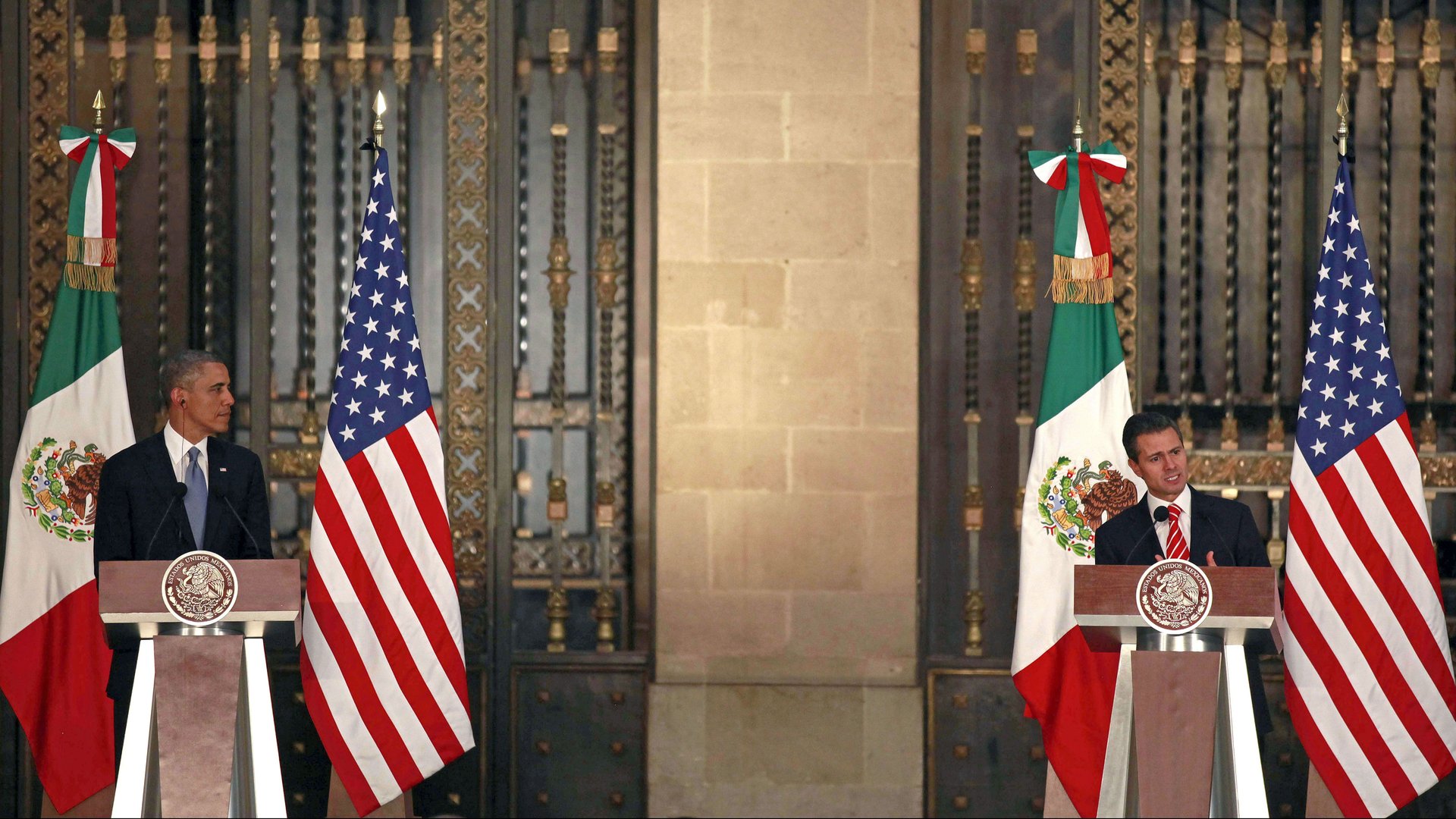The US war on drugs has been “found guilty” of killing thousands of people south of the border
A symbolic “trial” convened by activists and academics has found the US and its drug policies guilty of promoting the epidemic of violence that has killed thousands of people in in Mexico and Central America.


A symbolic “trial” convened by activists and academics has found the US and its drug policies guilty of promoting the epidemic of violence that has killed thousands of people in in Mexico and Central America.
In a verdict (pdf) issued Dec. 16, the “International Tribunal of Conscience”, whose “jurors” included human-rights activists and legal experts from various countries, said that the US has broken international law, as well as some of its own rules, by providing aid to governments with shoddy human-rights records. Mexico, also a defendant, was found guilty of crimes against humanity and state terror by the proceedings, held in September at New York University.
Mexico has been under growing scrutiny for failing to control rampant drug-cartel activity and corruption. In October the Inter-American Commission on Human Rights called the situation in Mexico “a serious human rights crisis“ and the UN’s high commissioner for human rights, Zeid Ra’ad Al Hussein, deemed the level of impunity deplorable. Mexico has dismissed criticism, saying that it’s committed to respecting human rights.
With the tribunal, organizers say they wanted to bring attention the US’s links to the situation in Mexico as well. Under a plan dubbed the Merida Initiative, the US has granted the Mexican government more than $2 billion in training and military equipment to fight drug trafficking, which they say has deepened the conflict south of the border.
“The US can’t wash off its hands and say ‘we give them the funds and they can do whatever they want with them,'” Camilo Pérez Bustillo, a visiting professor at New Mexico State University and one of the tribunal’s organizers, told Quartz. “The consequences are directly pertinent to Congress, voters and the Obama administration.”
The US recently withdrew $5 million in Merida aid due to human rights abuses in Mexico.
Similar civil society forums can be traced back to the Bertrand Russell International Criminal Tribunal, organized by the British philosopher in 1967 to examine crimes during the Vietnam War. Although not binding, citizen tribunals provide an opportunity for people to document and condemn criminal actions when official courts are unwilling to tackle them. Though they are often criticized for being one-sided, they help make “the rule of law applicable to the strong as well as the weak,” writes Richard Falk, a Princeton University professor who has served as a citizen juror.
The tribunal at NYU was sponsored by the university’s Hemispheric Institute of Performance and Politics and its history department, as well as by activist groups, including the US’s National Lawyers Guild. The jury heard from victims’ advocates. Government representatives from the US and Mexico were invited, but didn’t participate.
Not being able to dictate a sentence, the jury issued recommendations to the defendants instead, including ceasing all US aid to the Mexican security forces.